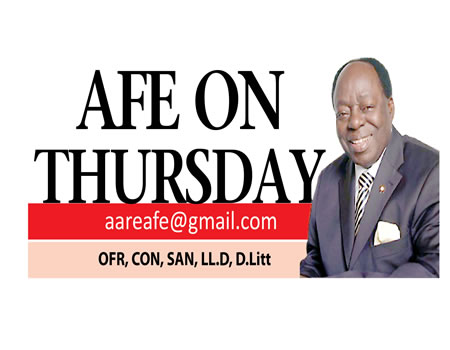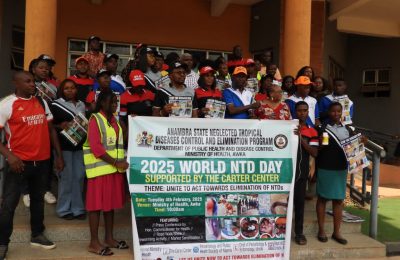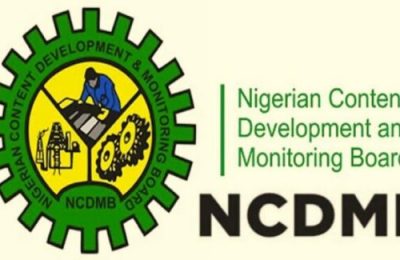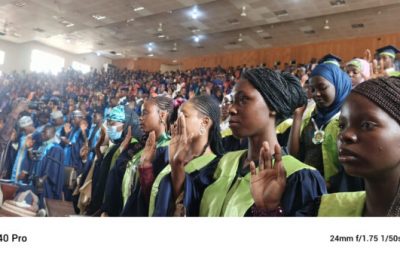
THE Russo-Ukrainian war is the largest military conflict in Europe since the Second World War. However, the recent trajectory of events suggests that the Russo-Ukrainian war is getting worse and not declining. International Military Intelligence reveals that North Korea has been supporting Russia in the war with the supply of a steady stream of ammunitions, missiles and other weapons since 2023. This was in furtherance of the Comprehensive Strategic Partnership Treaty signed by President Vladimir Putin and North Korean Leader Kim Jong Un in June 2023. This treaty contains a bilateral defence clause which imposes an obligation on both nations to rise in defence of each other in the event of a military conflict. Whether in the case of Russia deliberately going to war,North Korea must also join Russia under this treaty is arguable. It is my view that if Russia is attacked, then North Korea under this agreement is obligated to rise to defend Russia. However, North Korea is not be under any obligation to defend Russia when Russia itself instigates a war.
The above notwithstanding, North Korea sent 10,000 soldiers to aid Russia in the ongoing war. This isin exchange for Russia’s help in addressing its shortages in finance, food and space technology. Russia has agreed to pay over $263 million annually and send up to 700,000 metric tonnes of rice in exchange for the military aid. North Korea is also receiving advanced military technology from Russia, including materials that may enhance its nuclear and missile programmes particularly intercontinental missile technologies and space-based surveillance capabilities. Intelligence also revealed that Russia is seeking to launch another military reconnaissance satellite into space with plans to share the technology with North Korea. If all these are implemented, North Korea will have the capability to threaten and monitor both regional and international adversaries such as the United States, China and South Korea.

North Korea has pledged its support until Russian secures victory in the war. In furtherance of this pledge, the US intelligence has revealed that there are nearly 8,000 North Korean soldiers positioned near Ukrainian border of Kursk which has been under the control of Ukraine since taking control of it in August 2024. Russia and North Korea’s military cooperation will last beyond the war in Ukraine
International reactions to North Korea’s involvement in the Russo-Ukrainian war
The international community have viewed the military collaboration between North Korea and Russia as a threat to escalate tensions and destabilize regional security both at Europe (the current war front) and the Korean peninsula in future. South Korea in particular is peeved about the budding alliance between North Korea and Russia for fear that Russia will align with North Korea if ever there was a war on the Korean Peninsula. North Korea’s possible modernisation of their conventional and nuclear arsenal through the collaboration with Russia is a serious security threat to South Korea.
Top South Korean and European Union officials have condemned this military alliance and have threatened to counteract further military cooperation between Russia and North Korea. South Korea and Europe have shown their willingness to align with international community to halt North Korea’s military advances to Ukraine.Till now, South Korea has refrained from supplying lethal aid to Ukraine. It has only focused on humanitarian support. However, the active participation of North Korea in the Russo-Ukrainian war has compelled South Korea to revisit its military policies and participation in the war.
If North Korean soldiers begin active participation, South Korea may be forced to provide lethal military aid to Ukraine to counteract the influx of North Korean fighters in support of Russia.
International support as the reason for the elongation of the Russo-Ukrainian war
The cooperation enjoyed by Russia from nations such as China, Iran and North Korea have fuelled the war making the economic and political sanctions imposed by the UN on Russia of little or no effect. Before the intervention of North Korea, Russia had faced international sanctions, isolation and dwindling resources. President Putin hitherto expected a quick victory. However, he is now forced to rely on foreign assistance. In addition to this direct and indirect military aid from North Korea, Russia is also receiving international aid from Iran and China.
Iran supplied drones and other military equipment to Russia and China provided economic and political support. The Iranian drones have been used to target Ukrainian cities and infrastructures causing widespread destruction. Although China has not provided direct military aid, it provided crucial economic lifelines such as the purchase of Russian oil and gas. This has helped Russia to mitigate the effect of UN sanctions. China’s political support has also complicated the efforts of the West to isolate Russia diplomatically. The efforts of different countries have therefore complicated the geopolitical landscape and have made the West unable to mount effective response.
It is important to add that it is not only Russia that is receiving international aid. Ukraine has also received overwhelming international humanitarian and military aid from several countries such as NATO and the European Union and from corporations all over the world. This had helped Ukraine to prevent the Russian subjugation which has necessitated Russia’s exploration of its international collaborations.
Hence the Russo-Ukrainian war has lasted this long because of international intervention. North Korea’s direct involvement in the war has however opened another dimension to the Russo-Ukrainian war and raised the prospect of geopolitical realignment to challenge the west-led international order.This shift could have far-reaching consequences for the balance of power in Asia and the Middle East.
Read Also: Tinubu approves governing councils swap between federal varsities
Need for a concerted global effort to mitigate the effect of the involvement of other nations in the Russo-Ukrainian war
The Ukrainian president, Zelensky has called for unified and robust international response to this development and has called for the imposition of sanctions and pressure on North Korea.The UN has condemned North Korea’s direct participation in the war and has commenced discussions on how to respond to the alliance. Some diplomats have called for stronger sanctions on both countries, while others have advocated for diplomatic efforts to reverse the alliance. It has however been impossible to reach a consensus since both Russia and China hold a significant sway over the UN security council.
The introduction of the North Korean military to the war may give Russia a momentary boost. However, this will draw further international condemnation and possible stronger response from the West. South Korea may also open the floodgate to international involvement in the war. This may make the war escalate with unpredictable consequence for global security.
If the worse comes to the worst, parties may be forced to resort to the use of nuclear weapon.Of course you know as much as I do, the use of nuclear weapon by both parties may be the end of this generation on mother earth.
It is therefore obvious that if the bold incursion of other nations into the Russo-Ukrainian war is not well managed, this war can easily gravitate into the third-world war. More than 50 million people died in the Second World War.
The world may not survive a nuclear war if the Russo-Ukrainian war escalates.
Conclusion
This Article is therefore a call to all leaders of free countries, regional alliances and the United Nations to desist from fuelling the Russo-Ukrainian war in view of the prosect of it becoming a world war. Nations should cooperate and uphold all political and economic sanctions that may be imposed by the United Nations which may stifle the national aptitude to continue the war. It is true that all nations are sovereign and can foster political ties to their own benefits.However, this right should not be exercisable at the expense of global peace and security.
No nation should be given a direct or indirect notion that it is bigger than the United Nations.
The African continent is one continents that has maintained neutrality as a whole in the Russo-Ukrainian war.However, it is also at the receiving end since itis largely dependent on the food and oil and gas exports from Ukraine and Russia.
In 2023, it embarked on a 7-delegate peace mission under the leadership South African President Cyril Ramaphosa. However, the peace mission failed because the African leaders had no bargaining strength with which to compel a peace-negotiation. Also and unfortunately, some African leaders had shown solidarity for Putin’s invasion of Ukraine. Finally, the African Leaders in the delegation were unable to condemn Russia’s invasion of Ukraine directly.
Now is the time for Africa to unite and lend its voice strongly against the continuance of the war. The Russo-Ukrainian war has greatly raised the prices of food and petroleum in Africa, hence ending the war is for the economic benefits of the continent.
It must be noted that where the war escalates to a nuclear war, Africa will not be excluded from the rampaging destruction that will ensue from the use of nuclear warheads, or the radiation that will be left in the air after the nuclear warheads have been detonated.
This is therefore not the time for African leaders to keep quiet or sit aloof while the Russo-Ukrainian war ravages the globe. Rather it is the time for coordinated and concerted efforts to contribute actively to broker peace between Russian and Ukraine.
African leaders should also lend their voices and give political backing to halting international participation of other nations in the Russo-Ukrainian war, and also for nations to respect sanctions imposed by the United Nations. There can be no middle ground in the effort to broker peace between Russia and Ukraine.
Finally, the United Nations Security Council is responsible for maintaining international peace and security. However, it can only perform this peace keeping obligation when all five permanent members of the Security Council vote in favour (Article 27(3) of the UN Charter). Both Russia and China are permanent members of the Security Council. This impedes on the freedom of the Security Council to intervene in the Russo-Ukrainian war.
Hence the clause in Article 27(3) of the UN Charterthat requires the concurring votes of the permanent members should be removed from the UN Charter. This will greatly diminish Russia’s influence over the Security Council, thus giving it the opportunity to effectively mediate between the waring countries of Russia and Ukraine.
AARE AFE BABALOLA, OFR, CON, SAN, LL.D (Lond.)








